The Oakland Unified School District (OUSD) in California has become the first major district to implement a policy featuring all EV buses in its fleet.
While the district is hoping to frame the move as historical and important for students, some have come out to criticize the transition to all EV buses.
The Future
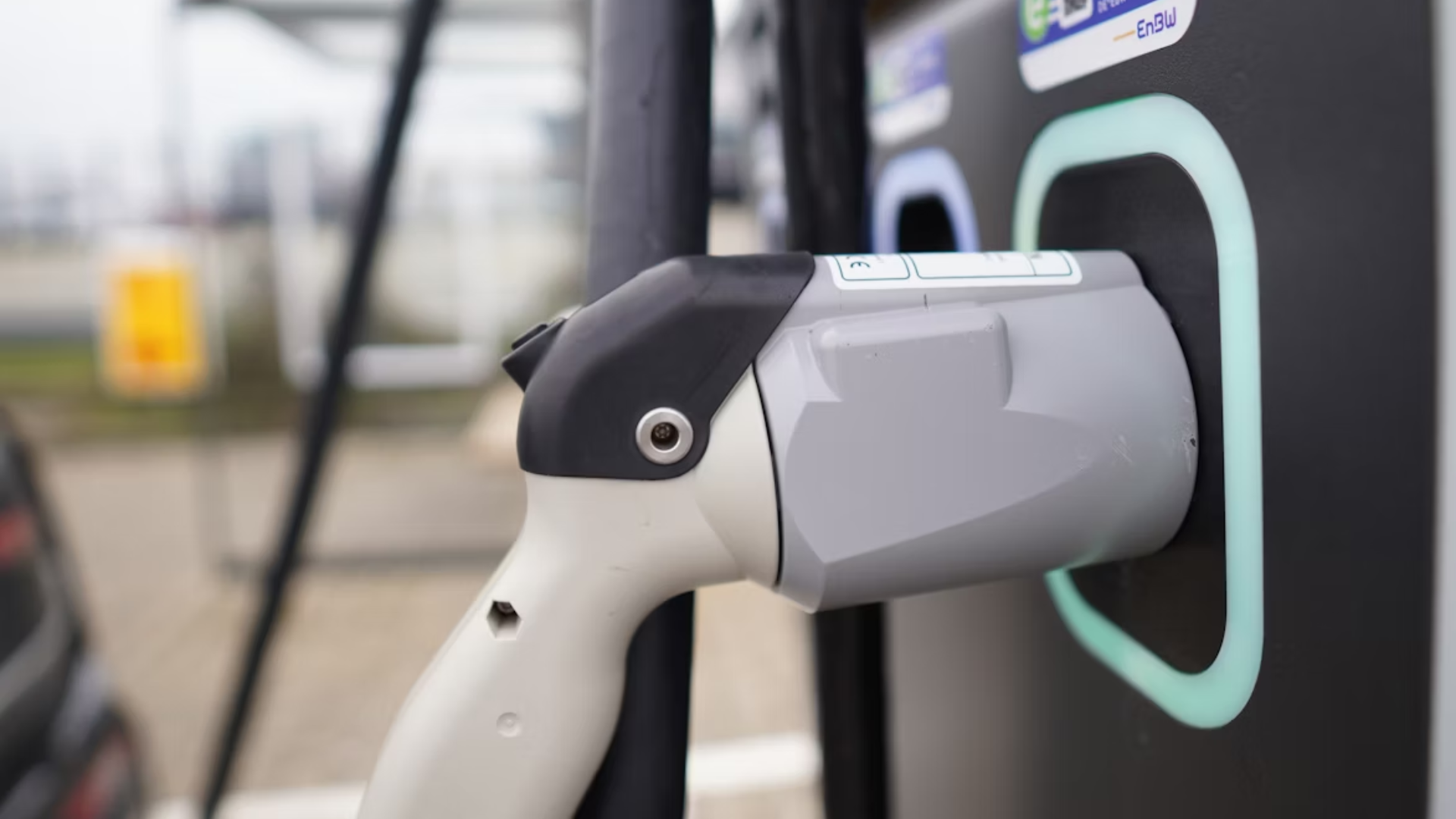
Officials for OUSD hope to make history with this move, saying the district will become the first in the country to switch to an electric bus fleet. Some agree with this sentiment.
“It’s the future,” said Ritu Narayan who is the founder of Zum, a student transportation services company based in the Bay Area that is supplying the buses.
Zum Statement
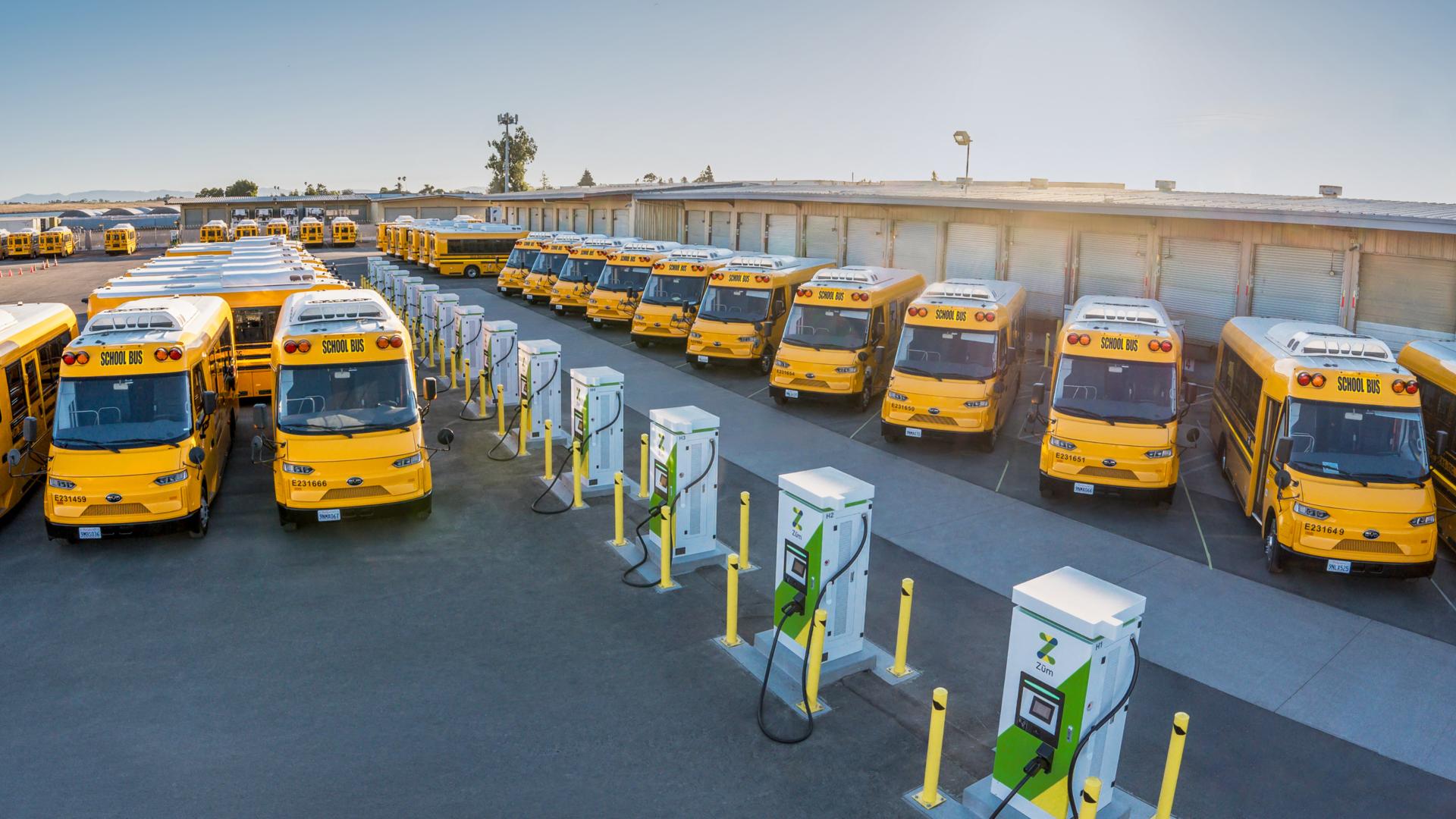
In an August 27 statement, Zum lauded the new 100% electric bus fleet, calling it a “historic achievement.”
“Today marks an exciting milestone in student transportation,” said Narayan. “By converting Oakland Unified’s school bus fleet to 100% electric, we are showing that sustainability solutions are here – and can positively impact an entire community. Electric school buses with V2G capability create cleaner transportation and send untapped energy from bus batteries back to the grid. It’s a win-win for children, families, schools and drivers.”
Zum’s Plan
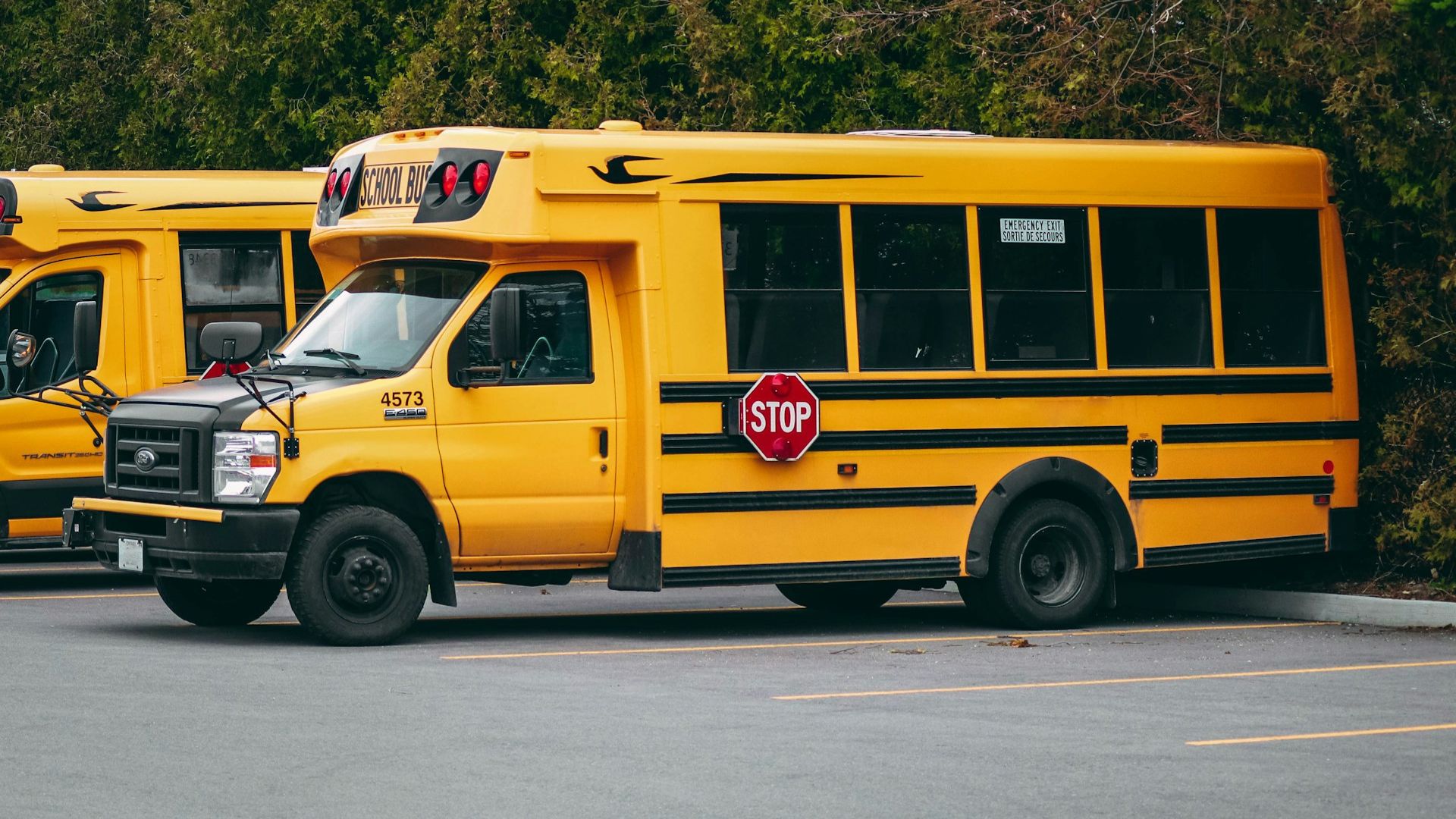
The San Francisco-based startup plans to deploy 74 electric school buses in Oakland.
Each bus will have a bidirectional charger with an AI-enabled Virtual Power Plant. This is how unused energy makes it back to the grid.
An Untapped Market

Electrifying student transportation would be tapping into an enormous market.
According to Zum, student transportation is the largest mass transit system in the country. School buses move 27 million students twice a day. But over 90% of America’s 500,000 school buses run off carbon-based fuels, releasing 8.4 million tons of greenhouse gases yearly.
Addressing Disabilities

OUSD Superintendent Dr. Kyla Johnson-Trammell emphasized that the EVs are important for helping students with disabilities.
“Our special needs students tend to have high chronic absenteeism,” said OUSD Superintendent Dr. Kyla Johnson-Trammell. “By trying to do our part of not trying to put so much pollution out there, we are taking responsibility of trying to produce and model. We need cleaner air, particularly for the most vulnerable.”
California Air Quality Needs Fixing

Electric school buses could go a long way to clean California’s dire air quality.
Especially in southern California, air quality has drastically worsened thanks to a series of wildfires and a record-breaking heatwave.
The Worst Air Quality in the Country
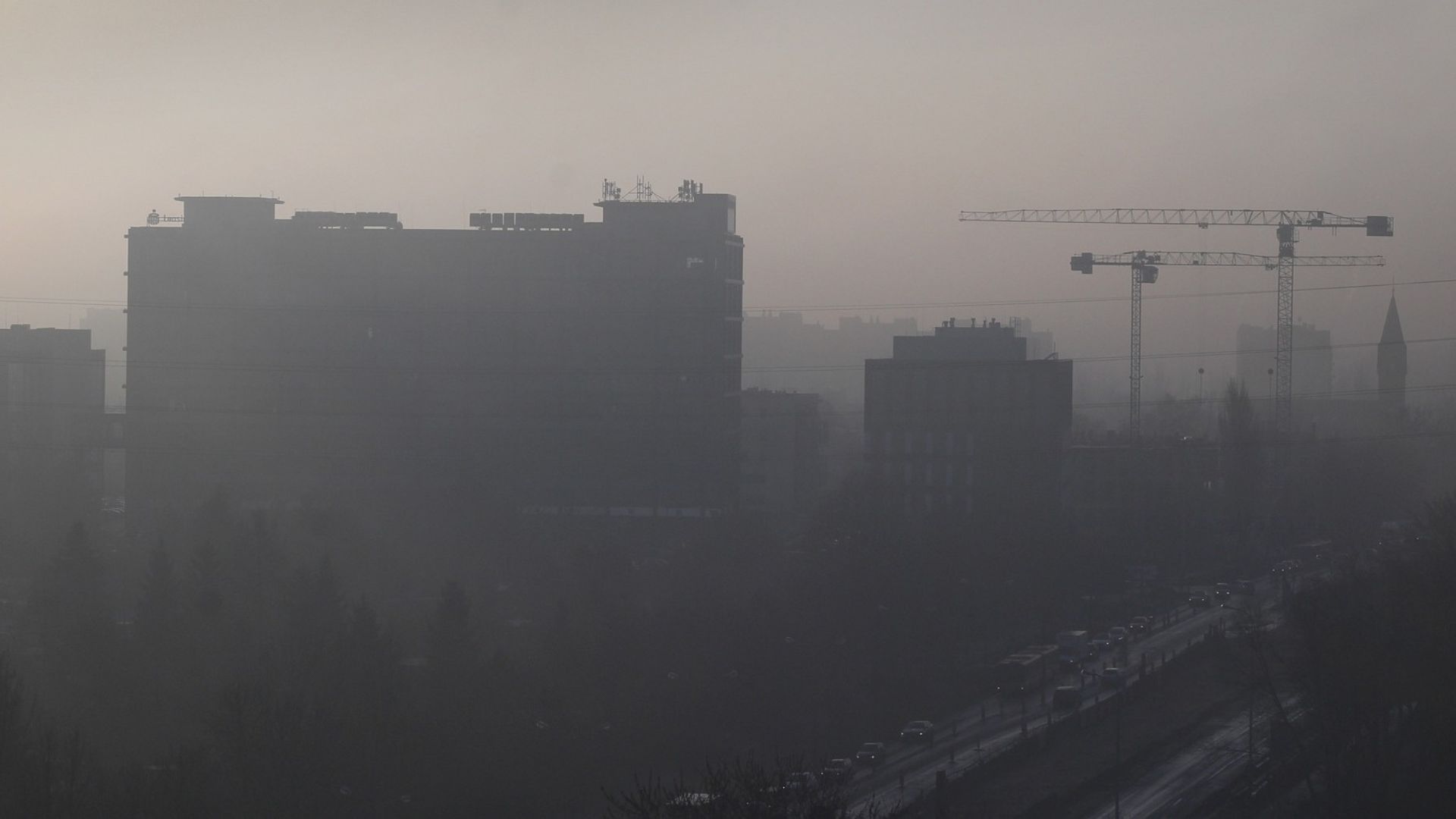
According to the American Lung Association, four of the five most polluted cities in the country are in California.
In a report that lists the cities with the worst short-term fine particle pollution and the worst yearly average of fine particle pollution, California cities make up the majority of the top 10 cities.
Action for Oakland
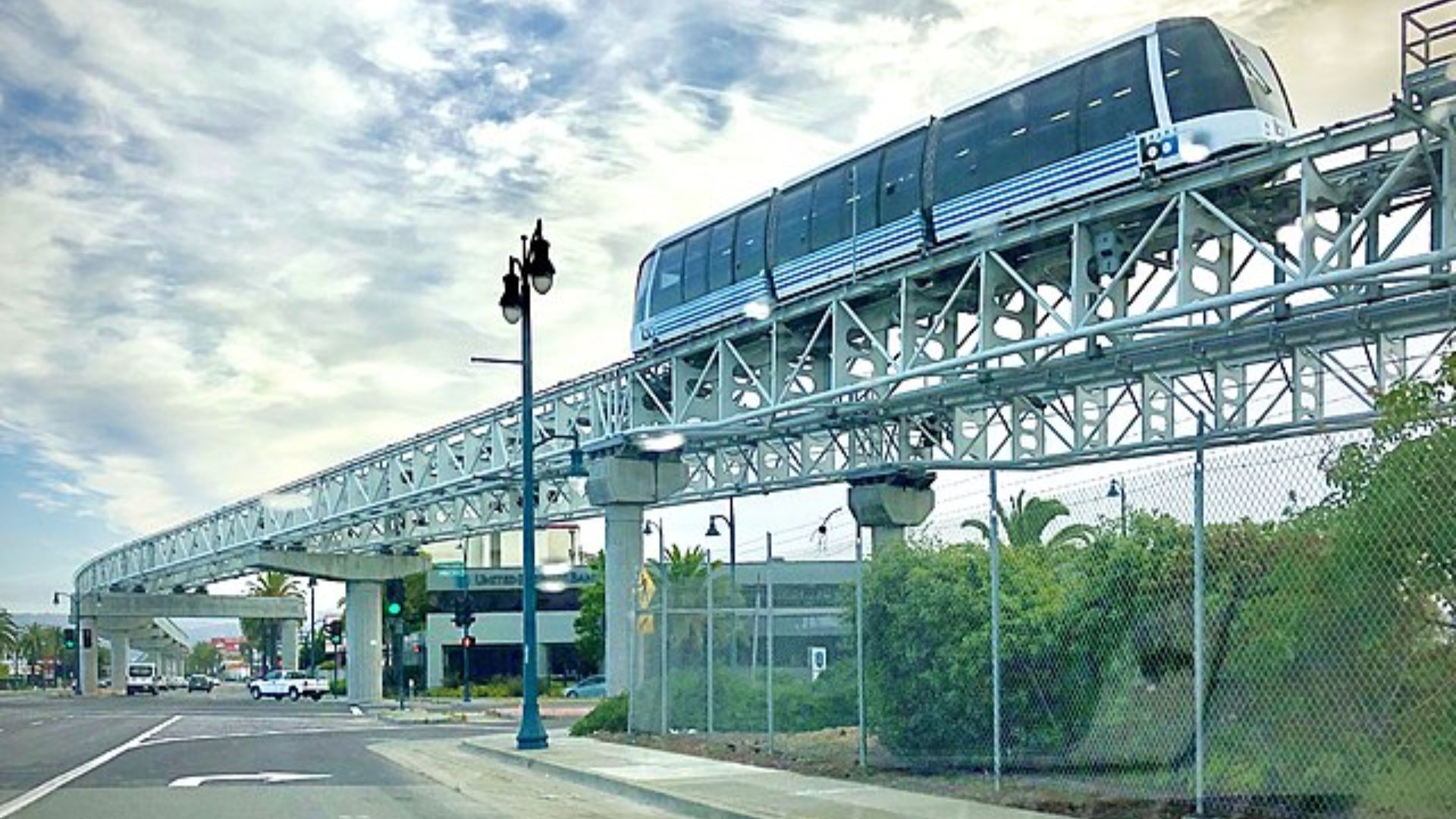
The buses are transporting 1,300 children to and from school.
Oakland was in particular need of a transition to electric vehicles, as many of its areas are close to freeways and industrial activity. Air quality was in dire need of action in its poorer parts.
Better for Vulnerable Families
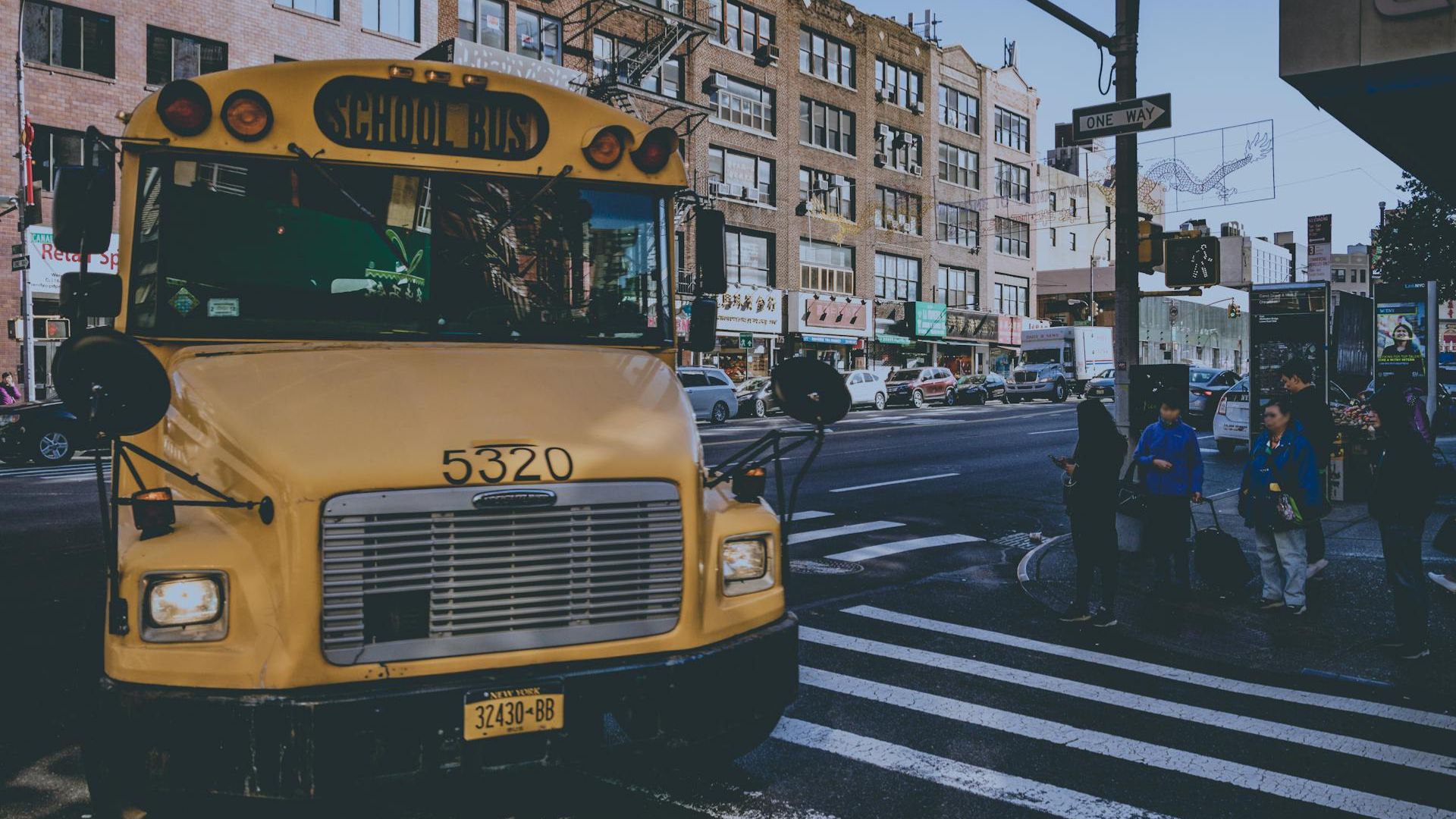
Oakland Unified’s executive director of transportation, Kim Raney, lauded the transition as a success for Oakland.
Raney said: “The families of Oakland are disproportionately disadvantaged and affected by high rates of asthma and exposure to air pollution from diesel fuels. Providing our students with cleaner and quieter transportation on electric school buses will be a game changer, ensuring they have an equitable and stronger chance of success in the classroom.”
Landmark Achievement

Johnson-Trammell was proud of the move, feeling it was an achievement worthy of recognizing because of the impact it would have on families.
“This is a landmark achievement, especially in Oakland, where families are disproportionately impacted by exposure to air pollution and high rates of asthma and other respiratory ailments,” said Johnson-Trammell.
Online Tracking

District board President Sam Davis extolled other virtues of the fleet, including the fact that parents will have an easier time tracking their child’s location.
“Another unsung marvel of this electric schoolyard is that every bus is being tracked online,” said Davis. “Parents can look at the app to see (where their child is).”
Providing Energy

The buses will be supported by the Pacific Gas and Electric Company (PG&E) which says that the energy they are providing will help reduce the energy strain on Californians.
“In providing 2.7 megawatts to these buses, the buses then provide 2.1 gigawatts of energy for all people of California on our most strained days,” said PG&E CEO Patti Poppe.
Powering Local Homes

The buses would contribute to solving two major problems.
Not only would the electric school buses offset enormous contributions to carbon emissions, but they would also supply enough electricity to the local grid to power about 400 homes.
Better for Children’s Health

Taking diesel-powered school buses off the road will benefit the Oakland population, especially the children who rely on them.
Diesel exhaust can cause asthma and hurt academic performance, especially for children from racial minorities and low-income households who are more likely to take the bus. Children are vulnerable to diesel exhaust because their bodies are developing and they can spend hours inhaling fumes on longer routes.
A Nationwide Transformation
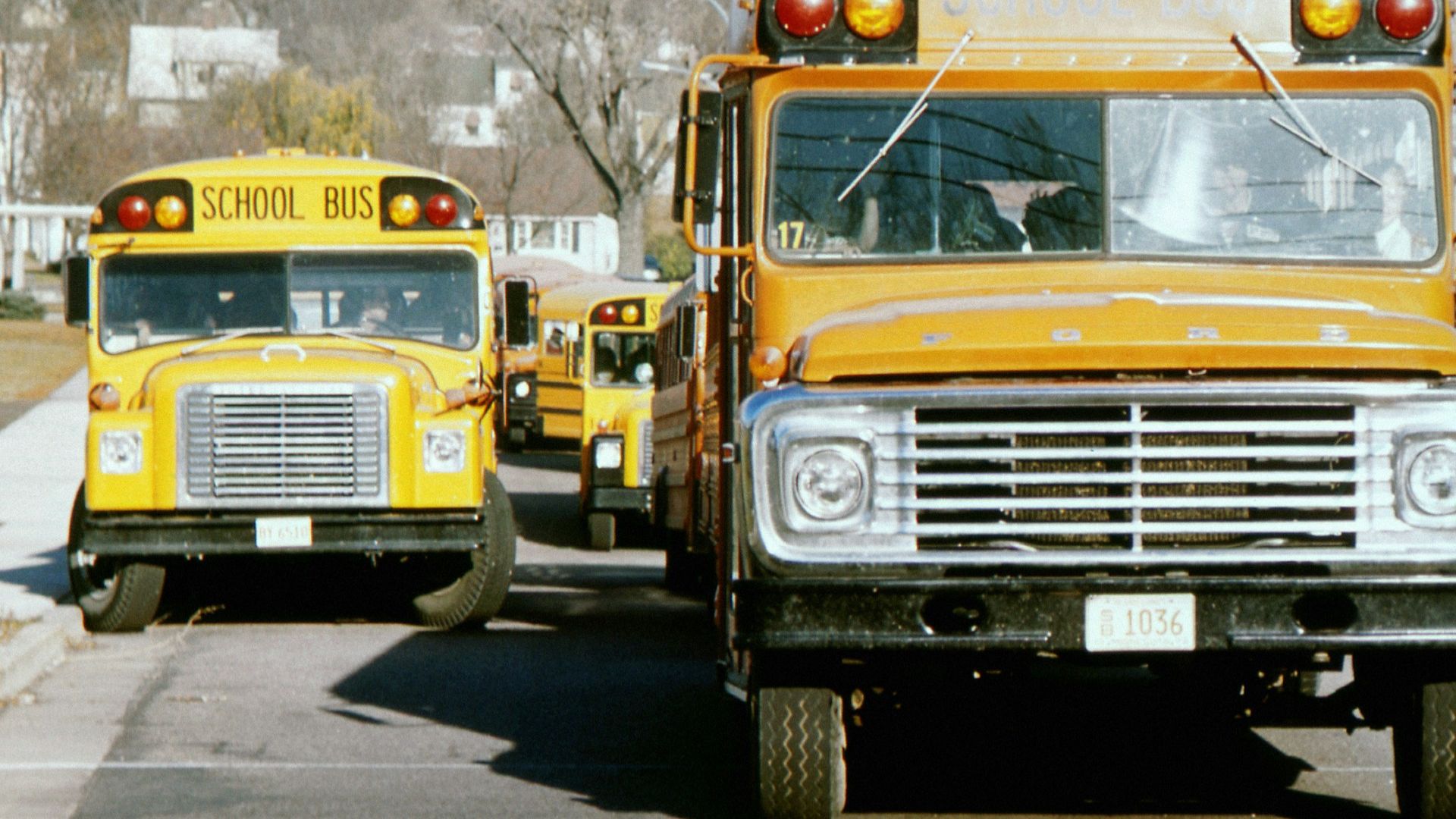
Electric school buses are hitting Oakland, but other states are keen to make the same transition.
School districts are committing to electric school bus purchases in 49 states and several tribal nations. Currently, electric school buses pick up and drop off 200,000 students.
Saving the Planet

Poppe felt that this move to a fully electric fleet would be a stepping stone to the goal of reducing harmful emissions and saving the planet from bad consequences.
“Converting to electric transportation reduces the leading cause of emissions and has the potential to offer a flexible power supply that benefits all customers. Our partnership with Zum and Oakland Unified on its fully electric school bus fleet is a blueprint for schools across California and the nation to better serve our students, local communities and, ultimately, our planet,” Poppe said.
Criticized Online
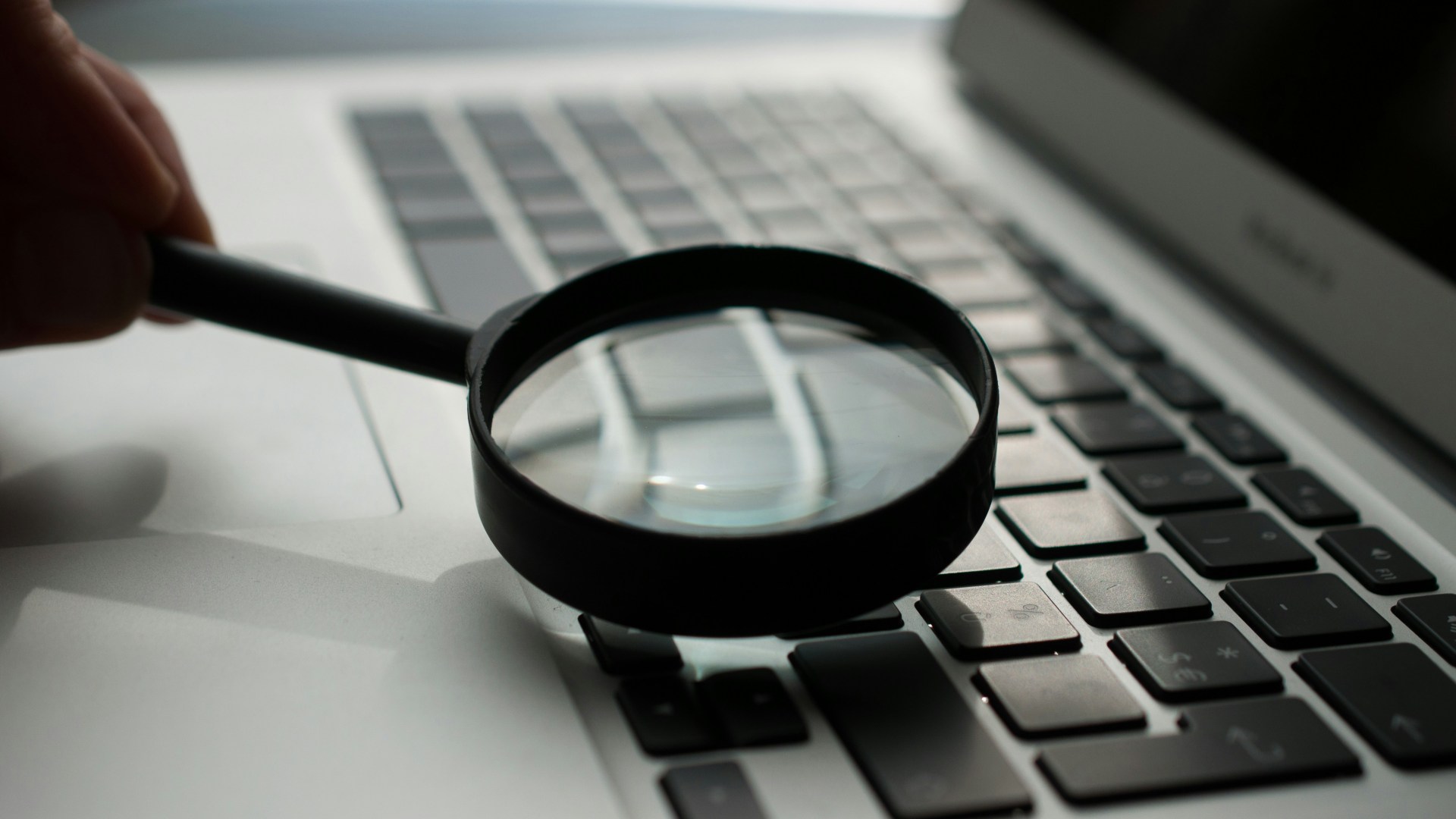
Although the school district is positive about the new changes, not everyone is onboard.
“Please stop, and work on lowering rates” said an X user in response to a PG&E statement announcing the partnership.
Energy Irony
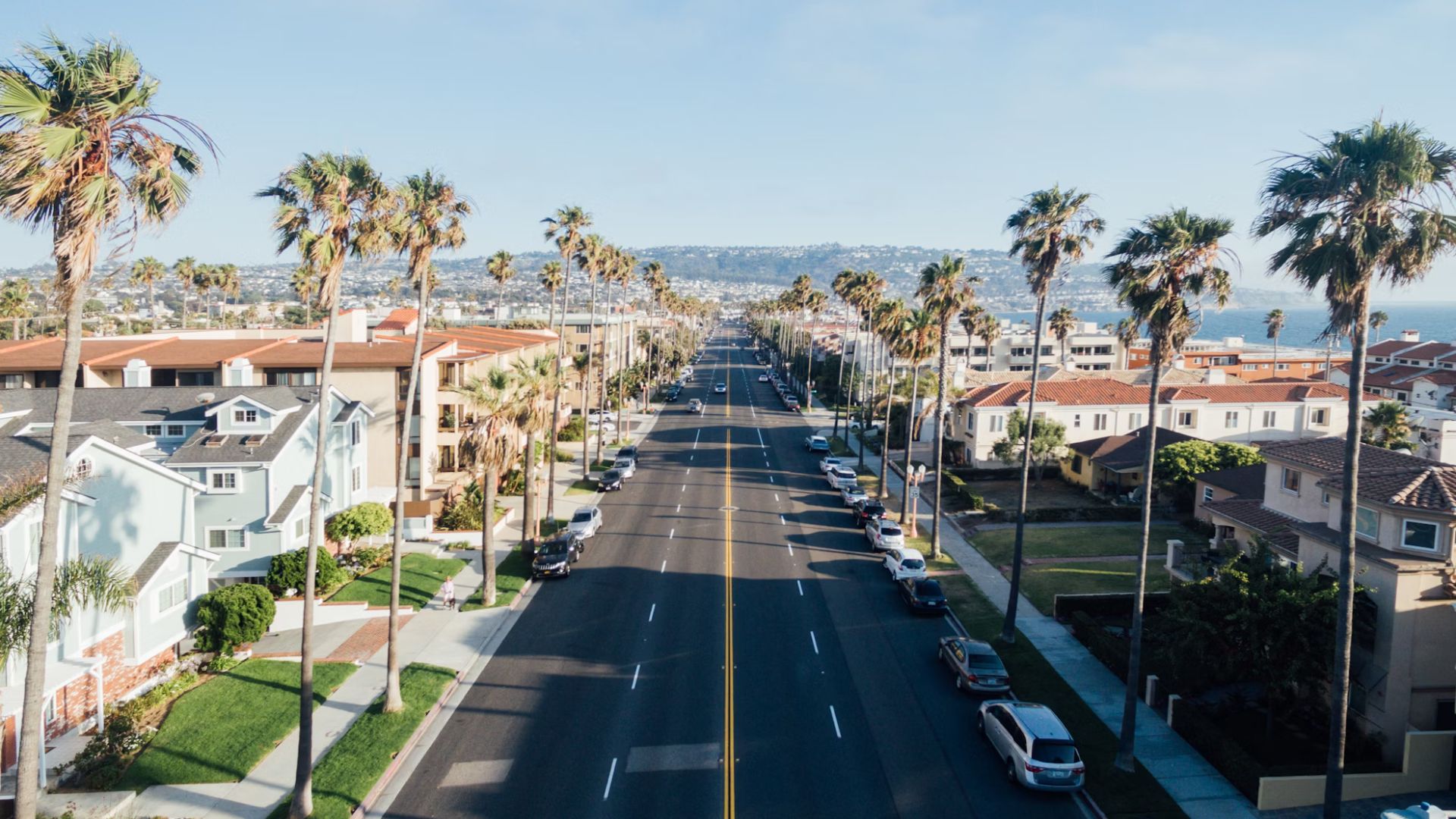
Some commenters online felt it was ironic that California was using its power for these buses in a state where energy rationing is a concern.
“In a state that has to ask people to not use AC or charge their EVs during peak hours because there’s not enough power. Too funny for words,” said X user Rodget L Nelson.
Charging Concerns
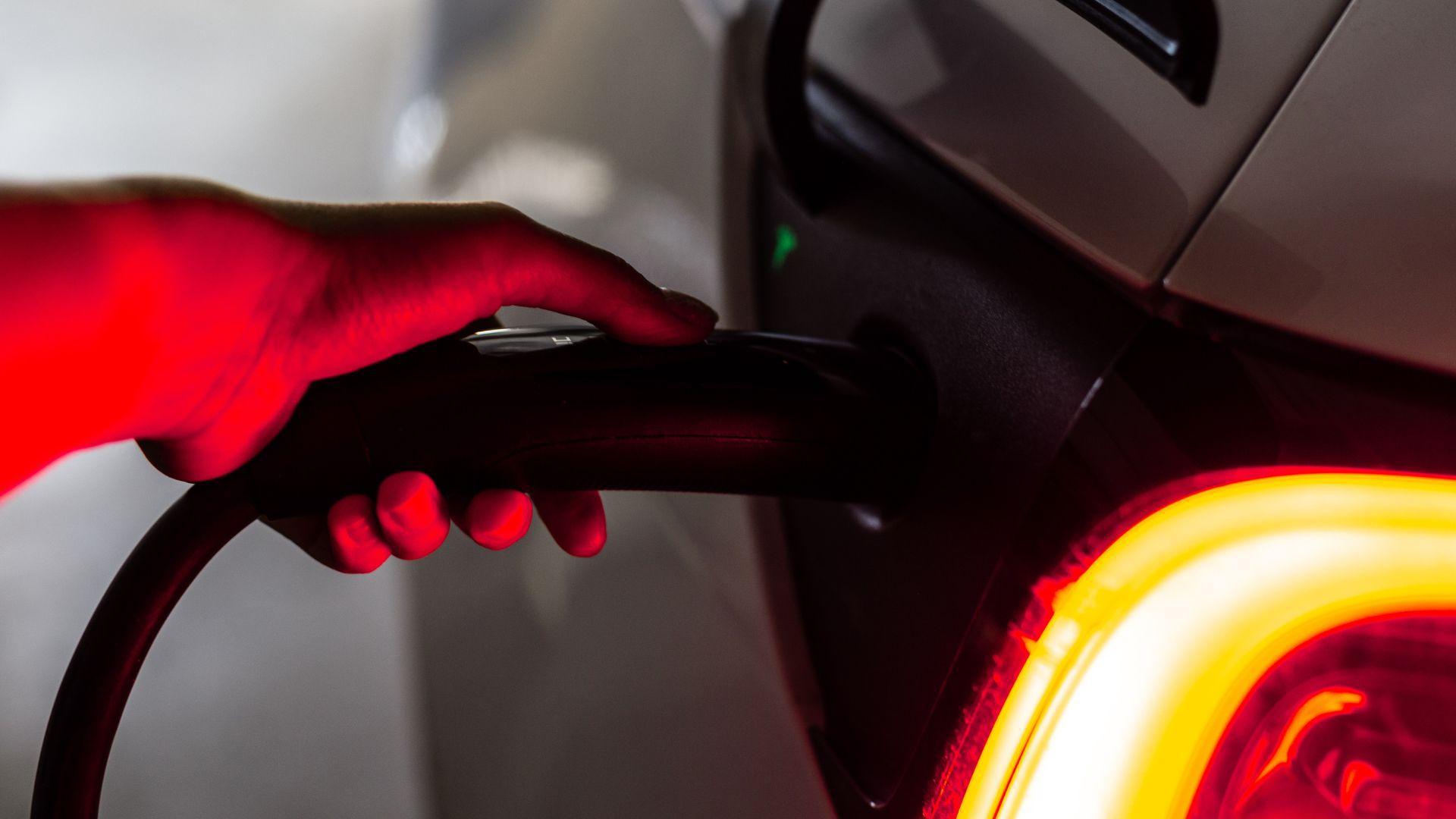
Other critics worried about the time the vehicles would spend charging and pointed out that recent EV sale slumps were a bad omen for the future.
“EV sales are dropping dramatically and car companies discontinuing them! No one wants to sit hours while your car charges! If you can FIND a charger that WORKS!” said an X user in response to the Oakland EV bus fleet.
A Slower Transition than Expected
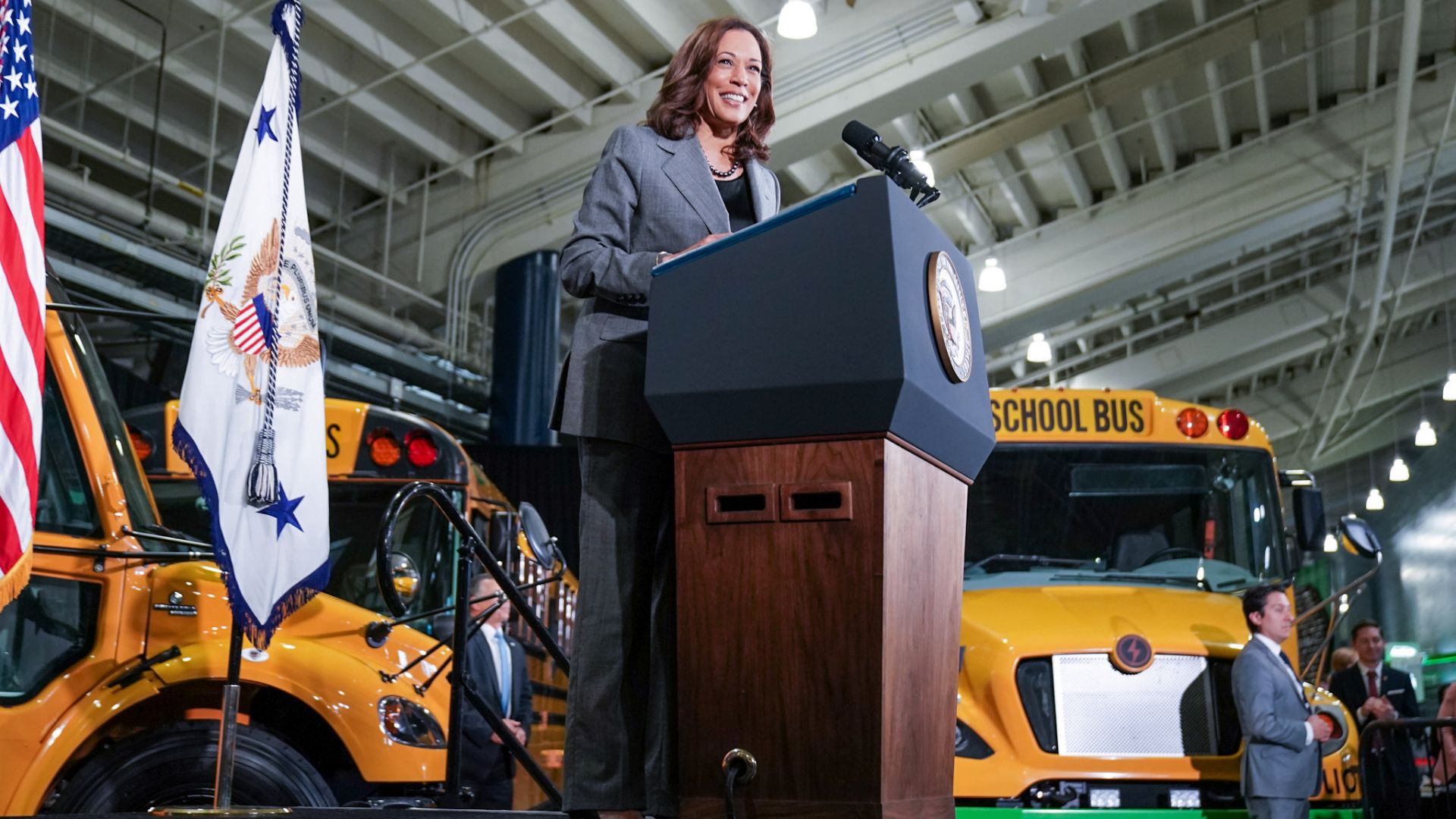
Kamala Harris touted federal grants to introduce electric school buses across 389 school districts.
However, only 27 of those districts have completed those projects. Within those districts, which were awarded a total of $19.3 million, there are 60 electric or propane-fueled school buses.
A Nominee’s Approval

The transition to electric school buses has Harris’ full support.
“It’s part of, you know, a nostalgia and a memory of the excitement and joy of going to be with your favorite teacher, to be with your best friends, and to learn,” said Harris. She lamented how 95% of school buses ran on diesel and announced plans to grant $1 billion to 280 more school districts.
Difficulty in Using the Funding

Despite the benefits it would bring to countless American children, many school districts are finding it difficult to utilize the federal funds that the Biden-Harris administration gave.
Dozens of school districts dropped out of the program due to issues like school board opposition and the costs of introducing electrical infrastructure upgrades.
Political Division
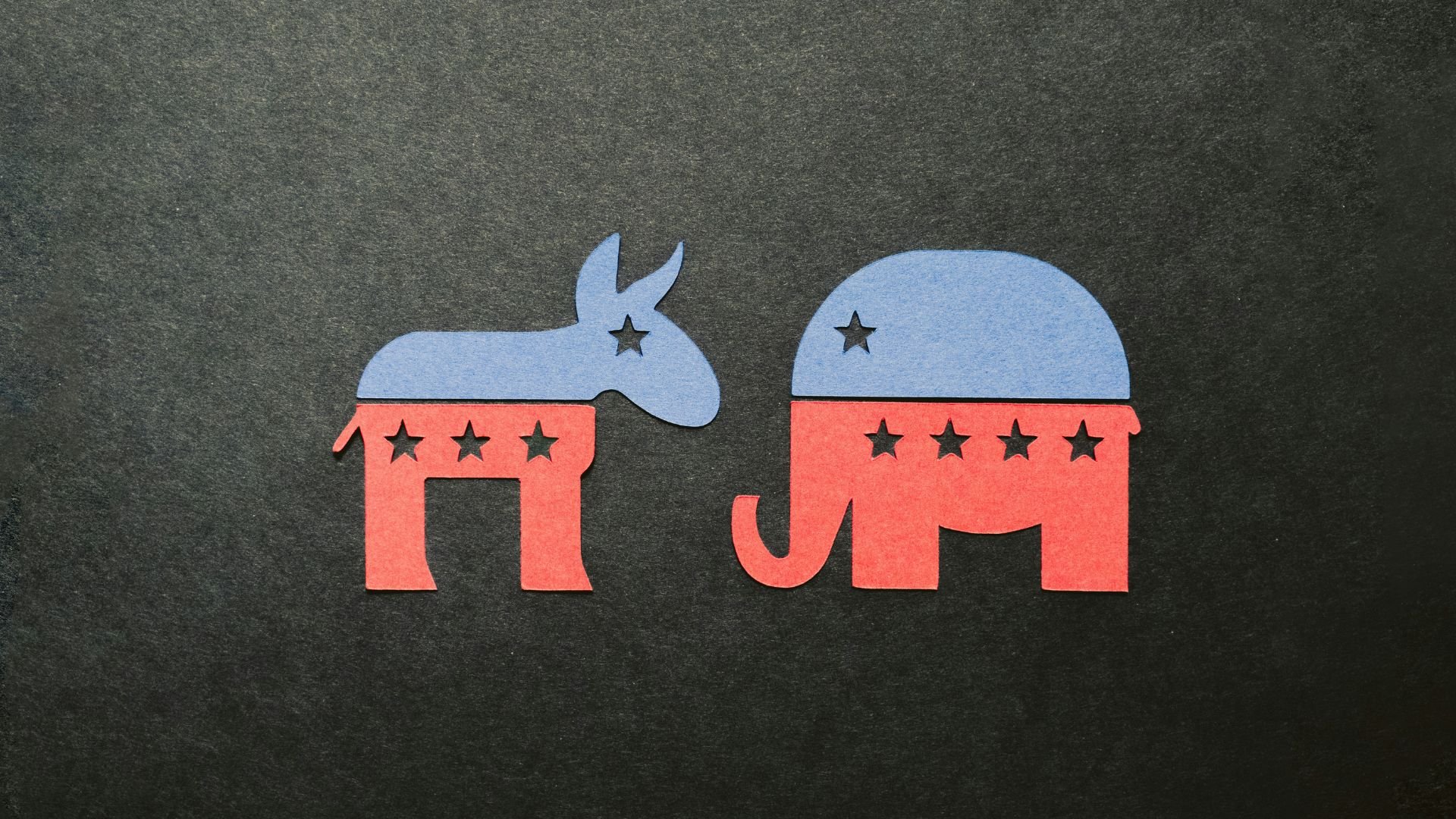
Electric vehicles have become a politically partisan and divisive topic, which explains some critic’s dismissive attitude toward EV adoption.
“The politics of the education system. Needs to be torn down and rebuilt back into a meritocracy. Not churning out self loathing, fearful, [idiots] without skills to manage their lives let alone help companies prosper. Churning out political climate zealots and rainbow warriors,” one X user wrote in response to the EV buses.
